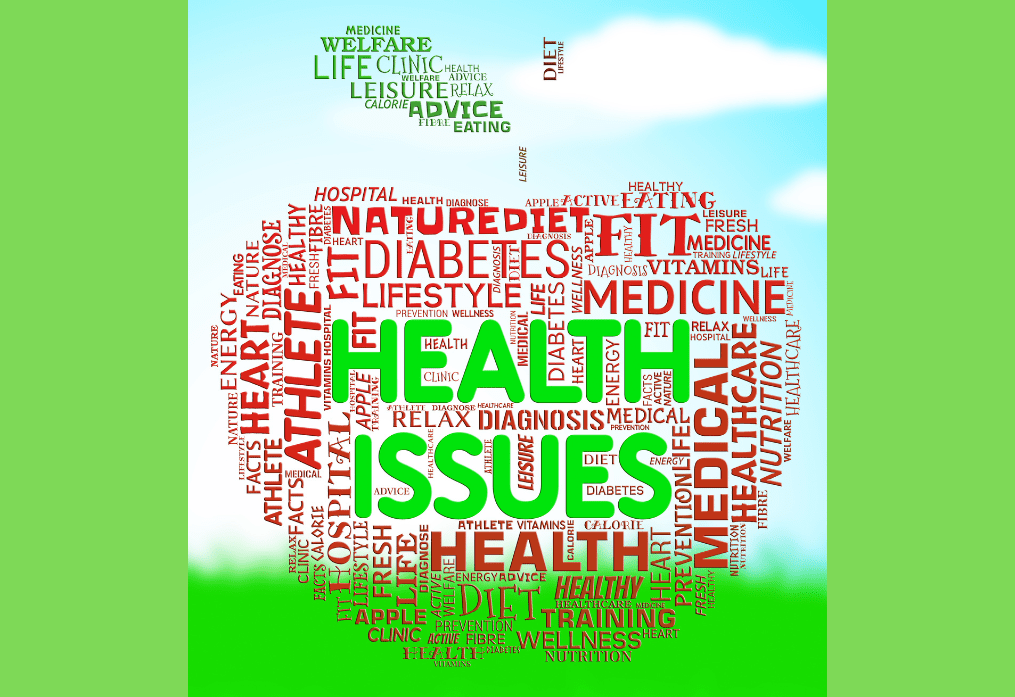| Health Issue | Top 11 Global Health Issues 2023 | Top 11 Global Health Issues 2024 | Changes/Updates |
| 1. Infectious Diseases | COVID-19 pandemic, HIV/AIDS, tuberculosis, malaria, hepatitis | COVID-19 pandemic, HIV/AIDS, tuberculosis, malaria, hepatitis, resurgence of measles | The COVID-19 pandemic continues to be a major concern in 2024, although efforts to control it have advanced with vaccination campaigns. Some regions may experience fluctuations in other infectious diseases due to healthcare system strain and vaccination efforts. |
| 2. Non-Communicable Diseases | Cardiovascular diseases, cancer, diabetes, chronic respiratory diseases | Cardiovascular diseases, cancer, diabetes, chronic respiratory diseases | Non-communicable diseases remain prevalent in 2024, with ongoing efforts focused on prevention, early detection, and management. Lifestyle changes and access to healthcare services are crucial in addressing these issues. |
| 4. Maternal and Child Health | Maternal mortality, infant mortality, malnutrition, access to healthcare | Maternal mortality, infant mortality, malnutrition, access to healthcare | Maternal and child health issues remain significant in 2024, with efforts focused on improving access to quality healthcare, nutrition, prenatal care, and education for mothers and children. |
| 5. Access to Healthcare | Health disparities, lack of healthcare infrastructure, affordability | Health disparities, lack of healthcare infrastructure, affordability | Access to healthcare remains a challenge in many regions in 2024. Efforts to strengthen healthcare systems, increase coverage, and address inequalities are critical for improving health outcomes globally. |
| 6. Climate Change and Health | Extreme weather events, air pollution, infectious diseases, food insecurity | Extreme weather events, air pollution, infectious diseases, food insecurity | Climate change continues to impact health in 2024, exacerbating existing health issues and leading to new challenges. Mitigation efforts, adaptation strategies, and sustainable practices are needed to address these issues. |
| 7. Aging Population | Elderly care, age-related diseases, healthcare systems | Elderly care, age-related diseases, healthcare systems | The aging population poses ongoing challenges in 2024, particularly in healthcare and social support systems. Age-friendly policies, preventive care, and support services are crucial for promoting healthy aging. |
| 8. Substance Abuse | Drug addiction, alcohol abuse, opioid crisis | Drug addiction, alcohol abuse, opioid crisis | Substance abuse remains a significant health issue in 2024, with efforts focused on prevention, treatment, and harm reduction strategies. Comprehensive approaches involving healthcare, education, and policy are essential. |
| 9. Antibiotic Resistance | Drug-resistant infections, overuse of antibiotics | Drug-resistant infections, overuse of antibiotics | Antibiotic resistance remains a global threat in 2024, requiring continued efforts to promote appropriate antibiotic use, develop new treatments, and enhance surveillance to combat the spread of resistant pathogens. |
| 10. Access to Clean Water | Waterborne diseases, sanitation, hygiene | Waterborne diseases, sanitation, hygiene | Access to clean water remains essential in 2024 for preventing waterborne diseases and promoting overall health. Investments in water infrastructure, sanitation facilities, and hygiene education are necessary for improvement. |
| 11. Vaccine Hesitancy | Mistrust in vaccines, misinformation, vaccine equity | Mistrust in vaccines, misinformation, vaccine equity | Vaccine hesitancy remains a concern in 2024, particularly amid the COVID-19 pandemic. Addressing misinformation, building trust, and ensuring equitable vaccine distribution are vital for controlling infectious diseases. |
Changes/Updates:
- The COVID-19 pandemic remains dominant in 2024, with ongoing vaccination efforts impacting infectious disease trends.
- Mental health concerns persist, influenced by the pandemic and other stressors.
- Climate change continues to affect health, requiring increased focus on mitigation and adaptation.
- Vaccine hesitancy remains a challenge, particularly in the context of COVID-19 vaccination campaigns.
- Efforts to discuss health disparities, improve access to healthcare, and combat antibiotic resistance continue.
- Aging populations and non-communicable diseases remain significant health concerns, emphasizing the need for preventive care and support services.
Medical Disclaimer for Mama Vega Enterprises: Optimal Health 360 Blog Post
The information on the Mama Vega Enterprises: Optimal Health 360 blog is for general informational purposes and is not a substitute for professional medical advice, diagnosis, or treatment. Always seek the advice of your physician or other qualified health provider with any questions you have concerning a medical condition.
Never disregard professional medical advice or delay seeking it because of something you have read on this blog. The opinions expressed by the authors are their own and do not necessarily show the views of Mama Vega Enterprises, its subsidiaries, or its affiliates. Mama Vega Enterprises does not endorse or assume any responsibility for the accuracy or reliability of any opinions, advice, or statements on the blog.
Call your doctor, go to the emergency department, or call 911 immediately if you have a medical emergency. Reliance on any information Mama Vega Enterprises provides: Optimal Health 360, its contributors, or other visitors to the blog is solely at your own risk.
Mama Vega Enterprises is not responsible for the content of linked third-party sites and does not make any representations regarding the accuracy, completeness, or other aspect of the information on such sites. The inclusion of any link does not imply endorsement by Mama Vega Enterprises.









